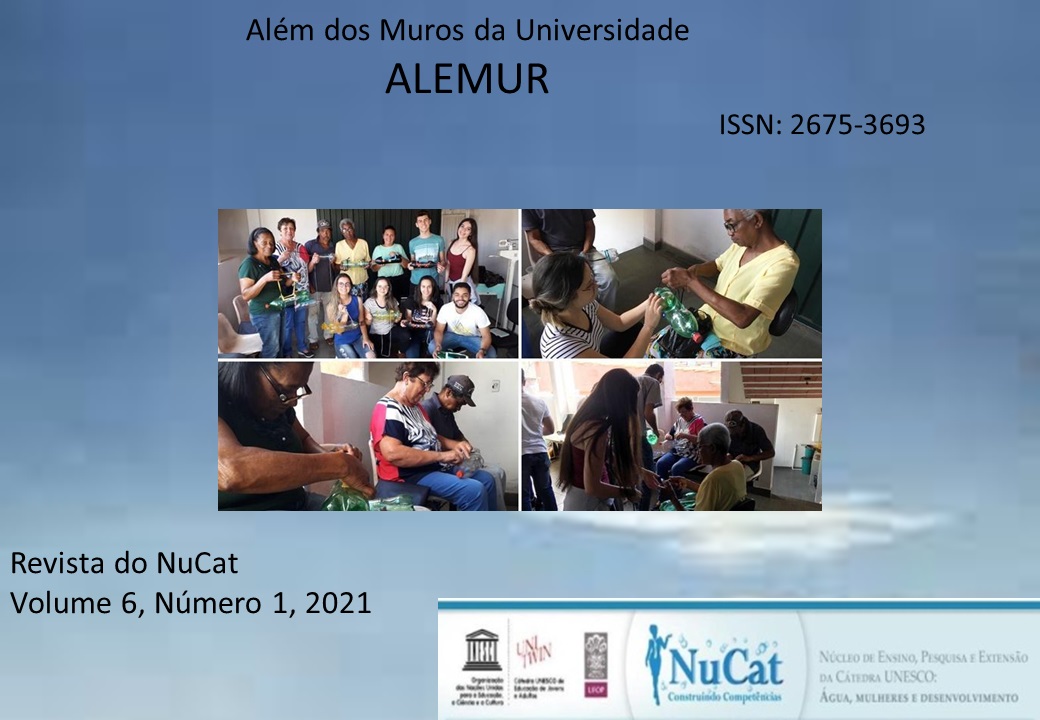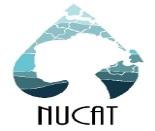As mudanças ambientais decorrentes do isolamento social e da pandemia da Covid-19
Resumo
No final do ano de 2019 em Wuhan, China, já havia os primeiros contaminados pelo novo coronavírus, e, rapidamente, a doença se espalhou por todo o mundo. Na falta de um remédio ou vacina eficaz, adotou-se o isolamento social e a lavagem recorrente das mãos como medidas de proteção contra a COVID-19. O presente estudo, a partir de revisões bibliográficas, corrobora que o isolamento social afetou diretamente a redução na poluição atmosférica mundial. Em Wuhan, gases como o dióxido de nitrogênio (NO2) caiu 22,8 μg/m3 e 12,9 μg/m3 na China. Na Índia, o dióxido de nitrogênio (NO2) caiu 40-50% sua concentração. Nos Estados Unidos o composto reduziu 26% nas áreas urbanas e 16,5% nas áreas rurais. Em regiões do epicentro do vírus, como Espanha, França, Estados Unidos e China, houve redução de 30% do composto. No Brasil, houve queda dos óxidos de nitrogênio (NOx) de 34-68% durante os dias do isolamento social. Outros benefícios foram a redução de resíduos em ambientes costeiros e redução no nível de ruído. Contudo, na Europa e na China a taxa de emissão do O3 aumentou como consequência da redução do dióxido de nitrogênio (NO2). Em relação a água, peça fundamental no combate do vírus, regiões como o Lago Vembanad, na Índia, ocorreu melhoria na qualidade da água superficial. No Brasil, a realidade é um pouco diferente, já que quase 35 milhões de brasileiros não têm acesso ao abastecimento de água tratada, e, portanto, é ainda mais dificultoso tomar medidas preventivas contra a COVID-19.
Referências
BERMAN, J.D.; EBISU, K. Changes in U.S. air pollution during the COVID-19 pandemic. Science of The Total Environment, Vol. 739, 2020, 139864, ISSN 0048-9697, DOI: https://doi.org/10.1016/j.scitotenv.2020.139864. Disponível em: http://www.sciencedirect.com/science/article/pii/S0048969720333842. Acesso em: 6 Out. 2020.
BRAUER, M. How much, how long, what, and where: air pollution exposure assessment for epidemiologic studies of respiratory disease. Proc. Am. Thorac. Soc., vol. 7, 111-115, 2010. DOI: https://doi.org/10.1513/pats.200908-093RM. Disponível em: https://www.atsjournals.org/doi/full/10.1513/pats.200908-093RM?journalCode=pats. Acesso em: 06 Mai. 2020.
CHEN, K.; WANG, M.; HUANG, C.; KINNEY, P.L.; PAUL, A.T. Air Pollution Reduction and Mortality Benefit during the COVID-19 Outbreak in China. MedRxiv, 23 Mar. 2020. DOI: https://doi.org/10.1101/2020.03.23.20039842. Disponível em: https://www.medrxiv.org/content/10.1101/2020.03.23.20039842v1. Acesso em: 20 Mai. 2020.
DUTHEIL, F.; BAKER, J.S.; NAVEL, V. COVID-19 as a factor influencing air pollution?. Environmental Pollution, Vol. 263, Part A, 2020, 114466, ISSN 0269-7491. DOI: https://doi.org/10.1016/j.envpol.2020.114466. Disponível em: http://www.sciencedirect.com/science/article/pii/S0269749120316468. Acesso em: 20 Mai. 2020.
DUTRA, J.; SMIDERLE, J. Água e saneamento na pandemia da Covid-19: desafio e oportunidade. Revista Conjuntura Econômica FGV IBRE, v. 74, n. 04, p. 50-51, Abril 2020. Disponível em: https://portalibre.fgv.br/revista-conjuntura-economica. Acesso em: 20 Mai. 2020.
ESA - European Space Agency, 2020. Disponível em: https://www.esa.int/Applications/Observing_the_Earth/Copernicus/Sentinel-5P. Acesso em: 20 Out. 2020.
GONZAGA, K.; ALVES, W.C. A presença do Sars-CoV-2 no esgoto: possibilidade de transmissão e monitoramento epidemiológico. In: I Congresso Brasileiro Interdisciplinar em Ciência e Tecnologia. Anais do I CoBICET - Trabalho Completo, online, 2020. Disponível em: https//www.even3.com.br/anais/icobicet2020/269587-A-PRESENCA-DO-SARS-COV-2-NO-ESGOTO--POSSIBILIDADE-DE-TRANSMISSAO-E-MONITORAMENTO-EPIDEMIOLOGICO. Acesso em: 30 out. 2020.
GUEDES, I.C.M. Influência da forma urbana em ambiente sonoro: um estudo do bairro Jardins em Aracaju (SE), 2005, Dissertação (Mestrado em Engenharia Civil), Universidade Estadual de Campinas, Campinas, 2005. Disponível em:http://repositorio.unicamp.br/jspui/handle/REPOSIP/258522 . Acesso em: 20 out. 2020.
Instituto Trata Brasil. Trata Brasil Saneamento e saúde. 2020. Disponível em: http://tratabrasil.com.br/. Acesso em: 17 out. 2020.
HUANG, C.; WANG, Y.; LI, X.; REN, L.; ZHAO, J.; HU, Y.; ZHANG, L.; FAN, G.; XU, J.; GU, X.; CHENG, Z.; YU, T.; XIA, J.; WEI, Y.; WU, W.; XIE, X.; YIN, W.; LI, H.; LIU, M.; XIAO, Y.; GAO, H.; GUO, L.; XIE, J.; WANG, G.; JIANG, R.; GAO, Z.; JIN, Q. WANG, J.; CAO, B. Clinical features of patients infected with 2019 novel coronavirus in wuhan, china. The Lancet, vol. 395, 497-506, 2020. DOI: https://doi.org/10.1016/S0140-6736(20)30183-5. Disponível em:https://www.thelancet.com/journals/lancet/article/PIIS0140-6736(20)30183-5/fulltext. Acesso em: 06 Mai. 2020.
KANTIS, C.; KIERNAN, S.; BARDI, J.S. Updated: Timeline of the Coronavirus, Think Global Health, 09, out, 2020. Disponível em: https://www.thinkglobalhealth.org/article/updated-timeline-coronavirus. Acesso em: 23 out. 2020.
KRECL, P.; TARGINO, A.C.; OUKAWA, G.Y. JUNIOR, R.P.C. Drop in urban air pollution from COVID-19 pandemic: Policy implications for the megacity of São Paulo. Environmental Pollution, Volume 265, Part B, 2020, 114883, ISSN 0269-7491. DOI: https://doi.org/10.1016/j.envpol.2020.114883. Disponível em: http://www.sciencedirect.com/science/article/pii/S0269749120325902. Acesso em: 6 Out. 2020.
MARTIN Maristel C.S.; MARTIN, Meister C.S. Condições atuais das emissões dos poluentes atmosféricos durante a quarentena da COVID-19 e as perspectivas futuras. Boletim de Conjuntura (BOCA), ano II, vol. 2, n. 5, Boa Vista, 2020. DOI: http://doi.org/10.5281/zenodo.3767111. ISSN: 2675-1488. Disponível em: http://revista.ufrr.br/boca. Acesso em: 20 Mai. 2020.
MUHAMMAD, S.; LONG, X.; SALMAN, S. COVID-19 pandemic and environmental pollution: A blessing in disguise?. Science of The Total Environment, Vol. 728, 2020, 138820, ISSN 0048-9697. DOI: https://doi.org/10.1016/j.scitotenv.2020.138820. Disponível em: http://www.sciencedirect.com/science/article/pii/S0048969720323378. Acesso em: 20 Mai. 2020.
NASA - National Aeronautics and Space Administration, 2020. Disponível em:https://earthobservatory.nasa.gov/images. Acesso em: 20 Out. 2020.
NASCIMENTO, D.M. Lavar as mãos contra o Coronavírus: mas, e a Água?. APS em Revista. Vol. 2, n. 1, p. 66-69 ISSN 2596-3317, 15 Abr. 2020. DOI: 10.14295/aps.v2i1.61. Disponível em: https://apsemrevista.org/aps/article/view/61. Acesso em: 20 Mai. 2020.
SHEHZAD, K.; SARFRAZ, M.; SHAH, S.G.M. The impact of COVID-19 as a necessary evil on air pollution in India during the lockdown. Environmental Pollution, Vol. 266, Part 1, 2020, 115080, ISSN 0269-7491. DOI: https://doi.org/10.1016/j.envpol.2020.115080. Disponível em: http://www.sciencedirect.com/science/article/pii/S0269749120332887. Acesso em: 6 Out. 2020.
SICARD, P.; MARCO, A.; AGATHOKLEOUS, E.; FENG, Z.; XU, X.; PAOLETTI, E.; RODRIGUEZ, J.J.D.; CALATAYUD V. Amplified ozone pollution in cities during the COVID-19 lockdown. Science of The Total Environment, Volume 735, 2020, 139542, ISSN 0048-9697. DOI: https://doi.org/10.1016/j.scitotenv.2020.139542. Disponível em: http://www.sciencedirect.com/science/article/pii/S004896972033059X. Acesso em: 6 Out. 2020.
SON, J.; FONG, K.C.; HEO, S.; KIM, H.; LIM, C.C.; BELL, M.L. Reductions in mortality resulting from reduced air pollution levels due to COVID-19 mitigation measures. Science of The Total Environment, Vol. 744, 2020, 141012, ISSN 0048-9697. DOI: https://doi.org/10.1016/j.scitotenv.2020.141012. Disponível em: http://www.sciencedirect.com/science/article/pii/S0048969720345411. Acesso em: 6 Out. 2020.
SOUZA e SOUZA, L.P.; SOARES, A.F.S.; NUNES, B.C.R.; COSTA, F.C.R.; SILVA, L.F.M. Presença do novo coronavírus (SARS-CoV-2) nos esgotos sanitários: apontamentos para ações complementares de vigilância à saúde em tempos de pandemia. Vigilância Sanitária Em Debate: Sociedade, Ciência & Tecnologia, Vol. 8 no. 3, 2020, 132-138, ISSN 2317-269x. DOI: https://doi.org/10.22239/2317-269x.01624. Disponível em: https://visaemdebate.incqs.fiocruz.br/index.php/visaemdebate/article/view/1624. Acesso em: 30 Out. 2020.
VENTER, Z.S.; AUNAN, K.; CHOWDHURY, S.; LELIEVELD, J. COVID-19 lockdowns cause global air pollution declines. National Academy of Sciences, vol. 117 no. 32 18984-18990, 28 Jul. 2020. DOI: https://doi.org/10.1073/pnas.2006853117. Disponível em: https://www.pnas.org/content/suppl/2020/07/23/2006853117.DCSupplemental. Acesso em: 6 Out. 2020.
WHO - World Health Organization; UNICEF - United Nations Children's Fund. Water, sanitation, hygiene and waste management for COVID-19: Interim guidance. 19 Mar. 2020. Número de referência WHO: WHO/2019-nCoV/IPC_WASH/2020.2. Disponível em: https://www.who.int/publications/i/item/water-sanitation-hygiene-and-waste-management-for-covid-19. Acesso em 20 Mai. 2020.
YUNUS, A.P.; MASAGO, Y.; HIJIOKA, Y. COVID-19 and surface water quality: Improved lake water quality during the lockdown, Science of The Total Environment, Vol. 731, 2020, 139012, ISSN 0048-9697. DOI: https://doi.org/10.1016/j.scitotenv.2020.139012. Disponível em: http://www.sciencedirect.com/science/article/pii/S0048969720325298. Acesso em: 20 Mai. 2020.
ZAMBRANO-MONSERRATE, M.A.; RUANO, M.A.; SANCHEZ-ALCALDE, L. Indirect effects of COVID-19 on the environment. Science of The Total Environment, Vol. 728, 2020, 138813, ISSN 0048-9697. DOI: https://doi.org/10.1016/j.scitotenv.2020.138813. Disponível em: http://www.sciencedirect.com/science/article/pii/S0048969720323305. Acesso em: 20 Mai. 2020.
Os autores mantém os direitos autorais dos documentos publicados na Alemur e cedem à revista o direito de publicação dos texto e seus metadados (em múltiplos suportes e formatos), inclusão em bases de dados e assinatura de acordos de indexação atuais e futuros (mesmo com licenças menos restritivas, para os textos, ou sem restrições, para os metadados), de modo a garantir a indexação do documento publicado e seus metadados.
Todos os documentos publicados são distribuídos em acesso aberto, nos termos da Licença Creative Commons Atribuição - Não-Comercial 4.0 Internacional (CC-BY-NC) que permite o uso, a distribuição e reprodução em qualquer meio desde que sem fins comerciais e que o artigo, os autores e o periódico sejam devidamente citados; garantindo uma ampla disponibilização do conhecimento científico e democratização do acesso.
A Alemur não só autoriza como incentiva que os autores e as equipes técnicas de repositórios digitais e outras bases de dados não comerciais depositem cópias dos artigos publicados em blogs pessoais, sites profissionais e locais semelhantes (sempre oferecendo a referência detalhada do documento), nos termos da Licença Creative Commons Atribuição - Não-Comercial 4.0 Internacional (CC-BY-NC).





